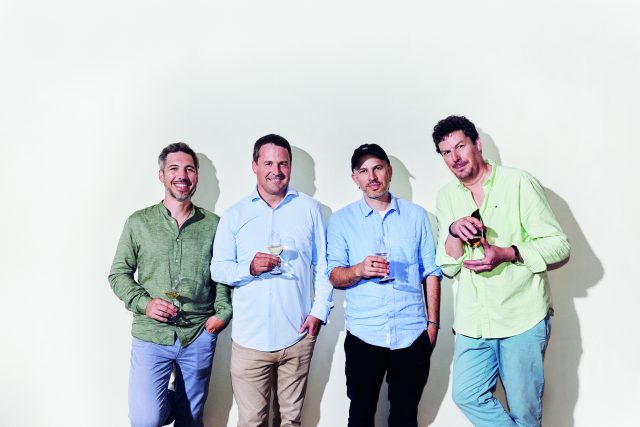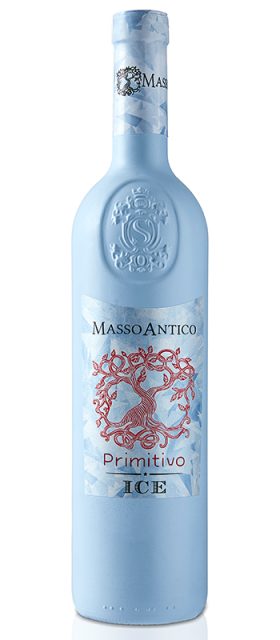This website uses cookies so that we can provide you with the best user experience possible. Cookie information is stored in your browser and performs functions such as recognising you when you return to our website and helping our team to understand which sections of the website you find most interesting and useful.
Why the Schenk wine group is going organic and moving upmarket
During a meeting earlier this year with the Schenk family, db learnt why this major wine group is going organic, moving upmarket, and introducing some striking innovations in 2024.

The company, which is the fourth largest family-owned wine company in Europe, may have been somewhat under-the-radar, but change is afoot with a new CEO and a raft of developments spearheaded by the ‘family ambassador’ François Schenk.
Indeed, François is hoping to raise the profile of the group, which has 40 wine estates spread across Switzerland, France, Italy and Spain, as a way of promoting the values of the family behind the brands and its properties.
“We have to develop our name, our brands and our products; we have to communicate,” he told db during a meeting at the London Wine Fair in May, at which the company took a stand right in front of the main entrance to the exhibition, as part of its attempt to increase awareness for Schenk Family Estates.
Such a strong presence at the UK’s only national wine fair was also done to mark the 50th anniversary of the group’s UK subsidiary, Buckingham-Schenk, which was established in 1974.
Looking back, François admitted that the family behind the Schenk group have been “way too discrete”, blaming their Swiss background, and commenting, “Marketing is not our thing.”
As part of a new mindset, the family are becoming a more public face in the company branding – with the picture above showcased at the London Wine Fair – while the Schenk group are embarking on some big developments.
One of these sees the company converting all its vineyards to organic farming practices, which amounts to almost 700 hectares of vines, with François promising that the entire family-owned estate will be certified organic within the next three-four years.
Noting that this change spans four countries, he said that it will be costly, adding, “But we want to go organic, and we are willing to take the risk.”
With the group also leasing a further 3,000ha of vineyards, of which around 15% are currently certified organic, François admits that there is still more to be done in terms of conversion, and hopes to encourage a shift to organics on the land it doesn’t own through monetary incentives.
As for the new CEO, that is a person called Theirry Gaillard, who comes from outside the industry, bringing with him widespread experience of brand building at FMCG companies such as Unilever and Danone.
Having joined Schenk Family Estates last September, he is embarking on “transforming the group”, with a particular focus on “buiding synergies” between different parts of the company, which he says is “mid-sized, with nine subsidiaries”.
As for the trade he is now part of, Gaillard told db, “Wine is my passion, now it is my business too.”
Gaillard is also supporting a move instigated by the Schenk family to move its wines upmarket, with the group’s output becoming higher quality, and more profitable too.
François said, “We can make better wines and make more money by producing less,” before admitting that the wine trade’s mindset was too firmly focused on churning out volume.
Aside from converting grape growing to organic practices and moving towards higher quality wine production – a set of aims that are connected – both François and Thierry stressed that “innovation” was a core pillar to the Schenk approach.
Although the group has “conservative” origins, according to François, with estates in Switzerland and Burgundy, it has a “creative” side emanating from its Spanish and Italian producers.
By way of example, François cited the Italian wine called Amicale Rosso, a Corvina-based wine from the Veneto, made using dried grapes, and therefore employing the same techniques as the famous Amarone wines of Valpolicella.
“It’s drier and lighter than Amarone, so we call it a baby Amarone,” said François.
More unusual is a new wine launched this year from another Italian property owned by the Schenk family – a red wine designed to be chilled.
Made using Primitivo, and hailing from the group’s Puglian winery called Masso Antico, the label is called ‘Ice’, and comes in a white bottle featuring thermochromic ink that sees the branding turn from red to blue when the wine reaches the suggested serving temperature of 8 degrees Celsius (see picture, bottom).
“We have observed that consumers are drinking wines that are lighter, fruitier and fresher, and that rosé and white wines are booming, so we have launched a Primitivo for chilling: we think we can reverse the decline in red wine sales,” said Thierry.
Summing up the new approach for Schenk, François told db, “We want to be known as a quality European wine producer, which is not easy, because we have as many as 40 estates over four countries, but we are a sustainable business: we build brands and we look to the long term.”

Related news
Burgundy 2023 en primeurs: cautious optimism
SWR: lighter bottles for entry level wines is 'the wrong message'
Ribera del Duero challenges 'out of date' perceptions in UK market

